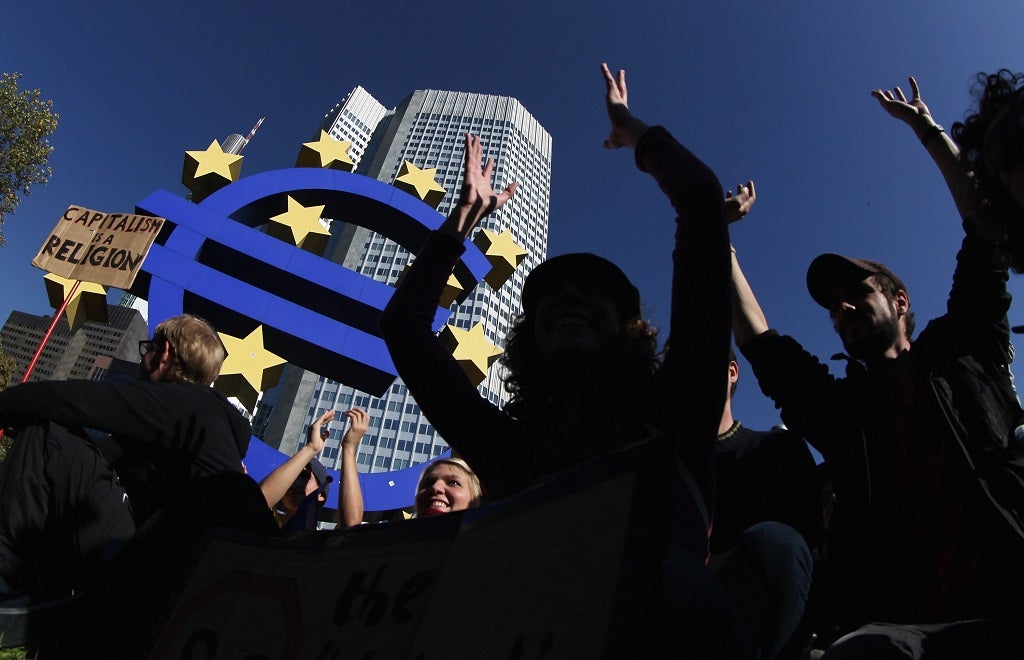Politics means nothing when deficits have to be cut
It's become clear that the world will take longer than expected to recover from this financial crash. Austerity, for now, is a forced hand across the EU.


We are doing it; every country in the eurozone is doing it; the US is about to do it. Everyone is cutting budget deficits.
The politics vary. Here, it’s about correcting the huge deficit that the Coalition inherited. In France, the new president has wrapped austerity in a socialist package: they are actually cutting their deficit faster than we are. Across southern Europe, the cuts are seen as essential to continued membership of the eurozone, and the pain imposed on people is disregarded. As for the US, everything waits on the election but, under present legislation, taxes are increased and spending is cut starting on 1 January. Whoever gets in, though, the deficit will end up being cut.
There is an extraordinary degree of unanimity. The politics may be different but the policies are the same. This is all the more remarkable when set against the economic backdrop. The growth forecasts in the IMF’s latest World Economic Outlook have been mostly downgraded and the IMF warns that there is a danger that things might turn out much worse if the eurozone fails to hold together and the US fails to cope with its fiscal cliff. The IMF also suggests that the impact of fiscal tightening may be even greater than it thought.
Quite a few economists agree with this view. But they have been ignored by policy-makers, and, as far as one can judge, will continue to be ignored in every major developed country.
In the UK, the argument is complicated by two things. One is uncertainty over the scale of the excesses of our boom. The IMF now thinks that the UK was running above its long-term sustainable growth path from 1999 right through to 2007, and that the degree of overheating was greater than in any G7 country. If that is right, government spending at the height of the boom was way above its sustainable level – our “structurally adjusted budget deficit” in 2007 was 5.2 per cent of GDP. If this is right, the Coalition inherited an even worse fiscal position than it thought.
The other uncertainty is what is happening to the economy. The figures suggest there has been no growth in the past year. But the country has created 750,000 jobs since last summer, VAT receipts are up 5 per cent (i.e. by more than inflation), and car sales in September were up more than 8 per cent on the same month last year.
What has become clearer is just how long it will take for the world to recover from the excesses of the credit boom. You can apportion blame how you like: between governments that spend money they were not prepared to raise in taxation; central bankers who focused on current inflation and ignored asset inflation; and commercial bankers who sprayed loans around to people who couldn’t hope to repay. Whoever takes the blame (I happen to think all three are guilty), digging out is going to take a long time.
In the UK, it probably will be 2018 before we can start reducing the national debt. To get a better picture, we have to wait until 5 December for the Chancellor’s autumn statement and the new estimates from the Office for Budget Responsibility. But it’s clear that things have gone badly wrong this financial year.
There will still be economic growth. People will still want to buy new cars and improve their homes. But it is becoming ever clearer that much of that growth, here and elsewhere, will have to go into correcting the errors of the past.
Sub-Saharan Africa: the next big thing?
Our fixation with what is happening here, in Europe and the US, means that our minds tend to glide over the economic news from the emerging world – forgetting that this is where some two-thirds of the additional growth in the global economy comes from. In economic terms, China creates another Greece every 10 months. The IMF’s new numbers are a good place to start.
China is expected to grow by 7.8 per cent this year and 8.2 per cent next, India by 4.9 per cent and 6 per cent. Those are pretty meaty numbers. Growth in what the IMF calls developing Asia is expected to speed up in the second half of this year to 7.25 per cent.
Of the rest of the world, Latin America is forecast to increase to 4.75 per cent growth by the end of next year, and Russia and its associates to keep growing at more than 4 per cent. But the figure I find most compelling is this one: sub-Saharan Africa is growing at 5 per cent a year and expected to keep doing so. Of course, this is from a very low base and there are huge social and other problems. But to see Africa as a growth engine is a bit different from much of the stuff loaded on to us every day.

Join our commenting forum
Join thought-provoking conversations, follow other Independent readers and see their replies